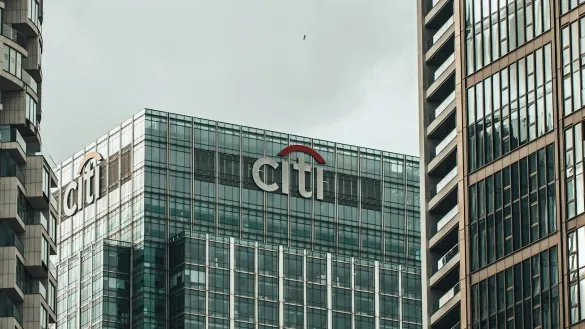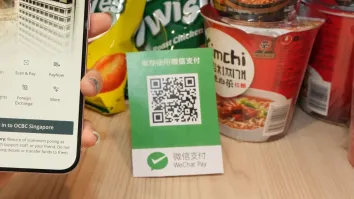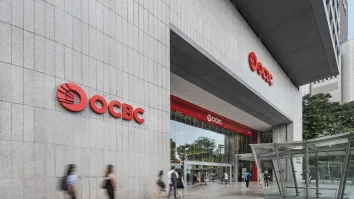
How Citi ASEAN's workforce champion adaptability, diversity
Joel Fastenberg talks about how Citi rose to the challenge of digitization, work-from-home and diversity.
No other year in the past decade have undergone as much change and disruption as 2020. The onset of the COVID-19 pandemic, which escalated the adoption of digital services in banking, isn’t the only thing that threw financial industries at a disarray; the stronger resurgence of racism issues, particularly in the US, saw groups and companies face intensified scrutiny on the topic of HR and diversity.
ASEAN and Singapore Head of Human Resources for Citi Joel Fastenberg’s 20 years of experience in the human resources field across Asian financial industries has prepared him for these changes. More than that, it has taught him to be empathetic to employees’ needs—whether it be ensuring that employees themselves learn the critical skill of being adaptable amidst a continually changing financial industry, or just simply listening.
“Over my years of living in Asia I have learned that building consensus and hearing the views of others before rushing into decisions is crucial,” Fastenberg told Asian Banking & Finance in an exclusive interview. “You don’t always have to be the loudest voice in the room to be heard. This is something that I have applied over the years when leading my teams.”
Asian Banking & Finance caught up with Fastenberg to learn more about Citi’s views on opportunities and changes in their ASEAN workforce and HR operations.
What are the biggest HR opportunities for Citi in ASEAN?
From an HR perspective, the most promising opportunity is the demographic make-up of ASEAN. By 2030, ASEAN is predicted to have the third largest labor force, contributing 10% of the global workforce. In addition, the median age is predicted to remain low at 33 years old.
These demographic trends bode well for ASEAN to continue to provide the necessary human capital for further growth.
Looking at our immediate future, the rapid digital transformation and unprecedented COVID-19 pandemic has unlocked many doors with respect to working remotely. I personally see a number of advantages and rewards when it comes to remote working. It has the potential advantage of creating more work-life balance, positively impacting employee satisfaction as well as overall morale. When implemented in an appropriate manner, it can also help to increase productivity and performance.
In addition, these will open up the possibilities to attract talent that we might not have been able to attract in the past. An example of this could be women who have left the workforce to start a family and are now looking to return.
What are the biggest challenges Citi has encountered in ASEAN, and how did you overcome these?
One of the challenges that ASEAN has for organizations is also one of its biggest strengths — its diversity. Within ASEAN, there is a wide range of people, language and cultures across the respective countries. This diversity is extremely important as research has repeatedly shown the link between diversity in management teams and the likelihood of financial outperformance.
However, there are sometimes difficulties that arise from this diversity. Last year at Citi, we conducted an internal analysis of our learning program. What we found was that for some of the modules, employees from the different countries who attended programs covering the same topics left with different learning outcomes. Whilst this allowed for our training to cater to the cultural nuances and different needs in each country, the differences also meant that employees in some countries were missing out on valuable information and skills that they were supposed to gain.
We have since managed to overcome this by harmonizing the learning programs across ASEAN by utilizing a single vendor that has a regional or even global presence and local capability in every country. This enabled programs to be customized by local staff to continue meeting the unique needs of any country while at the same time preserving learning outcomes across the region.
How are you preparing your workforce to thrive in the massive shifts in the banking industry happening today?
The world is currently experiencing a 4th Industrial Revolution (IR4.0) that is characterized by the fusion of technologies, blurring the lines between the physical, digital and biological spheres. This has similarly been reflected in the banking industry, as technology is being progressively embedded into the way we work every day.
Earlier this year, Citi launched the revamped Citi Singapore Learning Academy to meet our current and future business needs. The learning academy is structured around three main learning categories – the Innovation Series, Professional Skills Development Series and Women Development Series. Staff are able to pick up skills that are in demand such as Data Visualisation with Python, Presenting & Influencing with Impact and Human Centered Design.
Moving forward, we will continue to keep a constant ear on the ground, listening to employees needs and challenges via various touch points, evaluating our programs regularly and adjusting them as necessary in response to feedback from staff who have attended them. We also continue to explore the usage of technology to enhance staff learning experiences and have so far achieved great results.
How does Citi prepare its employees that their work and services may stay relevant for the future of work that’s shaped by the pandemic?
The pandemic has challenged us to re-examine our processes in these areas. What we are seeing is that our investments in the digital transformation of our bank is paying off, as our client’s own business models have evolved with technology, resulting in more of them turning to our digital solutions and services.
We believe that the acceleration in the adoption of our digital services will become a long-term shift in client and consumer behavior as more continue to discover the ease and convenience that digital services bring. We expect that technology will be heavily leveraged upon to power the future ways of working and supporting our clients. To that end, we are equipping our employees with the skills they need to thrive in this new era through avenues such as the Citi Singapore Learning Academy.
Citi has pushed through with its internship plans and has also committed to give all summer interns a full-time job upon graduation. What was the reason behind the decision?
We took a decision at Citi to re-imagine the 2020 Summer Intern Program to provide our early career talent with unparalleled opportunities to learn and develop in a virtual environment. We also committed to give all summer interns in our hub locations full-time job offers provided they met minimum requirements. We decided to commit to providing full-time offers for our interns because we knew they were facing many uncertainties during this time. We intended to reassure them about their role at Citi and our commitment to their careers.
Top executives in Citi has spoken up about the topic of diversity and racial injustice, which has intensified in recent months. Whilst these topics are not new to the bank, how has it changed over the years?
Citi has a long history of supporting a range of efforts designed to build diverse and inclusive workplaces and communities. Over the past few years, there has been a great sense of urgency and our efforts have only been heightened.
We have also seen a greater call for accountability beyond having only conversations around diversity. At Citi, we have taken the lead by being transparent in publishing statistics on our unadjusted pay gap for minorities and women. The unadjusted pay gap measures the difference in median total compensation when we don’t adjust for factors such as job function, level and geography. The unadjusted pay gap for women globally stood at 71% and can be mainly attributed to differences in gender representation at senior levels of the bank. Citi has committed to increase global representation of female Assistant Vice President to Managing Director level roles to at least 40% by 2021.
Here in Singapore, we have published that our female representation at Assistant Vice President to Managing Director is at 36% as of December 2019, an increase from 32% in December 2017.
Whilst progress towards our goal has been made, clearly more needs to be done.
How do you plan to ensure that these concerns are met in Citi’s Singapore and ASEAN HR operations?
Diversity and Inclusion is a top priority at Citi. We believe that that diversity drives innovation and enriches conversations with our clients and employees. Beyond being a business imperative, it is also simply the right thing to do.
I consider it one of my goals to ensure that within Citi Singapore & ASEAN, we are driving an inclusive and diverse workforce and environment. I want everyone who comes to work for Citi to feel comfortable in the environment they are working in. Only through building diverse teams and an environment where employees feel confident and comfortable, can the organization also be at its best.
At Citi, diversity and inclusion is not only an HR led responsibility but one where staff across all levels and functions actively engage. We have in place the Citi Employees Networks to establish a platform for diversity and inclusion. In Singapore, these include Women, Pride and Generations Employee Networks. We also have a Green and Sustainability Committee. They are open to all employees and assist the bank in recruiting and retaining talent, celebrating ethnic, cultural and community diversity, supporting community outreach and providing professional and personal development opportunities to their members.
How has your 20 years of experience in the human resources field across financial industries across the globe help you in gearing up Citi’s employees for a post-COVID world?
One of the most important traits I have picked up over the last 20 years is adaptability. Having worked in different markets including the US, Japan and now Singapore, I have had to be adaptable throughout the different stages in my career.
In this continually changing world, a critical skill for employees to thrive is to be adaptable and open to change. This has been a large focus of mine especially with ensuring that beyond the individual modules and categories within our learning programs, employees have the chance to learn how to be adaptable. Business and workers who don’t remain nimble and adjust in the face of change, will find it increasingly difficult to stay relevant.
What are some of the most valuable lessons you’ve learned over the years—and how do you apply this in your role as Citi’s Head of Human Resources for Singapore and ASEAN?
One of the most valuable lessons that I have learnt over the years is the importance of listening. Over my years of living in Asia I have learned that building consensus and hearing the views of others before rushing into decisions is crucial. You don’t always have to be the loudest voice in the room to be heard. This is something that I have applied over the years when leading my teams.
Another lesson is to chase your passions and follow your dreams. Back when I decided to learn Japanese during my university studies, I could have never imagined the far reaching impact it would have on my career. By taking that first Japanese course, it has now morphed into leaving home when a job opportunity presented itself in Japan and spending two-thirds of my career outside of the US.
Can you share with us your goals and any future projects?
As mentioned earlier, one of my goals is really to continue driving talent, diversity and inclusion within Citi. It is incredibly important to me that people feel safe and comfortable to be who they truly are while at work.
Some other areas that are exciting is harnessing data within the HR function to drive decision making and playing our part in shaping the future of work. We are going through a tech-transformation in the HR function.
On the future of work, at least for the foreseeable future, we’re not going to be able to have our full employee base together in the office. This brings about many of its own challenges, I am excited by our work to continue evolving towards an optimal work structure that is relevant for today’s situation and for meeting Citi’s needs in the future. We have to constantly assess what enables us to be the best for our clients and constantly move towards that goal.



















 Advertise
Advertise













